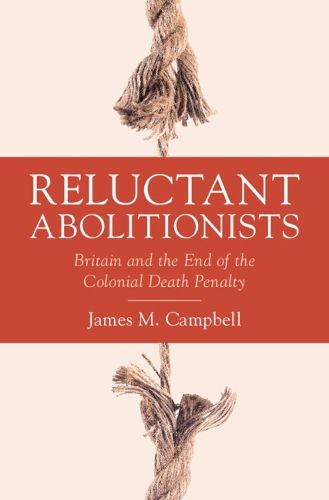Readings Newsletter
Become a Readings Member to make your shopping experience even easier.
Sign in or sign up for free!
You’re not far away from qualifying for FREE standard shipping within Australia
You’ve qualified for FREE standard shipping within Australia
The cart is loading…






Britain abolished the death penalty for murder in 1965, but many of Britain's last colonies retained capital murder laws until the 1990s. In this book, James M. Campbell presents the first history of the death sentences imposed under British colonial rule in the late twentieth century; the decision-making processes that determined if condemned prisoners lived or died; and the diverse paths to death penalty abolition across the empire. Based on a rich archive of recently released government records, as well as legislative debates, court papers, newspapers and autobiographies, Reluctant Abolitionists examines connections between the death penalty, British politics, decolonisation and the rise of international abolitionist movements. Through analysis of murder trials, clemency appeals, executions and legal reforms across more than 30 British colonies, it reveals the limits of British opposition to the death penalty and the enduring connections between capital punishment and empire.
$9.00 standard shipping within Australia
FREE standard shipping within Australia for orders over $100.00
Express & International shipping calculated at checkout
Britain abolished the death penalty for murder in 1965, but many of Britain's last colonies retained capital murder laws until the 1990s. In this book, James M. Campbell presents the first history of the death sentences imposed under British colonial rule in the late twentieth century; the decision-making processes that determined if condemned prisoners lived or died; and the diverse paths to death penalty abolition across the empire. Based on a rich archive of recently released government records, as well as legislative debates, court papers, newspapers and autobiographies, Reluctant Abolitionists examines connections between the death penalty, British politics, decolonisation and the rise of international abolitionist movements. Through analysis of murder trials, clemency appeals, executions and legal reforms across more than 30 British colonies, it reveals the limits of British opposition to the death penalty and the enduring connections between capital punishment and empire.